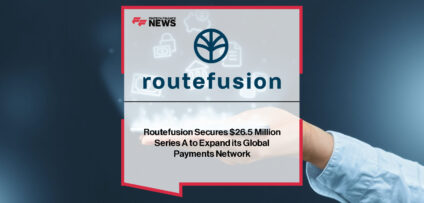Breaking News

Data Has a Critical Part to Play in Combating Fraud – Why We Need to Manage, Not Delete It
Companies House is, according to a Times report, currently discussing proposals to erase all records of organisations that went out of business over six years ago. At the moment, this threshold for storing data on dissolved companies stands at 20 years. Everyone should have the right to a second chance and the opportunity to effectively wipe their slate clean. But there are major concerns that the move would obstruct investigations into fraud, money laundering and corruption.
Complex fraud cases go back many years and involve detailed, intricate investigations. Fraud is becoming increasingly common: we are now more likely to be a victim of fraud than any other crime. In the UK alone, cases of identity theft have risen by 57% in the past year, according to research from fraud prevention firm Cifas. Its research found more than 148,000 victims in the UK in 2015 compared with 94,500 the previous year. The problem isn’t, of course, confined to the UK. France is at the top of the leaderboard for credit card theft, and in the US, around 12 million residents per year are said to have had their identities fraudulently used.
In the global, borderless world of commerce, too, fraud is endemic, with more than 36% of organisations experiencing economic crime in the past two years. High profile cases continue to be amplified by the media with cases like the Panama Papers revealed earlier this year, focusing on 11.5 million leaked documents including questionable transactions and disclosures from companies spanning North and South America, Europe and Asia. In the UK, the Serious Fraud Office has recently charged businesses with making corrupt payments, as well as charging bankers responsible for manipulating LIBOR (London Inter-Bank Offered Rate) currency.
With over 85% of fraud carried out online, it’s no coincidence that fraud rates are escalating along with the proliferation of connected devices: between 2016 and 2020, the number of connected devices is forecast to double, from 22.9 billion this year, to 50 billion in 2020. With these connected devices, we generate phenomenal amounts of data – a rich source of intelligence for criminals wanting to defraud us, in our consumer lives and our corporate lives. But this data and its effective management has a huge part to play in combating fraud.
Smart businesses are using intelligent software not just to analyse the data they and their clients generate, but to draw meaningful insight in their drive to combat fraud. They are using software to visualise connections and context; to identify trends and patterns; to establish entities and remove duplications; to increase accuracy and precision; to verify and validate missing information; to find parties across disparate databases, accounts and transactions; to flag abnormal transactions and disclosures; and to generate a single customer view.
Understanding their data and its connections in this way they find – to plagiarise Aristotle – that the whole is greater than the sum of its parts. Erasing this data may well free up memory, clear systems and simplify processes, which we presume are the key drivers behind Companies House and its proposals. But it shifts us back a gear in our national drive towards transparency. It leaves businesses without the ability to undertake detailed due diligence. And it removes the key to unlocking serious crime, leaving businesses and consumers vulnerable.
By Martin James, Director Single Customer View Entity Resolution, EMEA for Pitney Bowes
- EXCLUSIVE: “Passion Project” – Brice van de Walle, Mastercard in ‘The Fintech Magazine’ Read more
- FreedomPay Drives Global Merchant Innovation Read more
- FIS Brings AI-Powered Advancements to Seamless, Personalized Digital Banking Experiences Read more
- Citi Ventures Invests in BVNK to Power the Next Generation of Financial Infrastructure Read more
- Nearly Two-Thirds of Global Retailers Say Payment Method Flexibility Drives Revenue Growth, ACI Worldwide Survey Finds Read more















